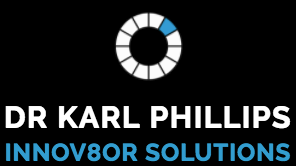Skill
Skill
Approach to address increasing system complexities and poor business alignment through the definition of the structure and operations of an organisation into blocks and interfaces using a holistic approach at all times
Competency
Competency
Expert
Competency Level
Competency Level
75%
KNOWLEDGE (THEORIES, IDEAS & CONCEPTS)
Through Professional/Personal Study Gained Through Experience
SKILLS & APPLICATION OF KNOWLEDGE
IN REAL WORLD SITUATIONS
Together with Responsibilities / Accountabilities
Selected Challenges & Approaches
Together With lessons Learnt
Selected Achievements & Successes
Together with Any ‘So What’ Statements of Insights
